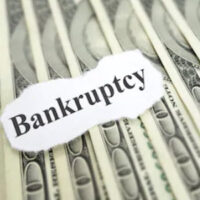In Bankruptcy, You Can Own Property Without Owning Property

Here’s a riddle: How can you own property, but legally, not own that same property? The answer is one that exists in the legal world, and which has special impact in the bankruptcy world. If you’re filing Chapter 7 bankruptcy, understanding the different kinds of ownership can be the difference between being legally able to keep property or having to surrender it to a bankruptcy court or trustee.
Examples of Ownership
As you may know, Chapter 7 bankruptcy allows you to keep some of your property, but also could require you to surrender some of your property to help satisfy your debts (which are eventually discharged if the bankruptcy is granted). That means that the less property you own, the better off you will be in a Chapter 7.
So how can you convince a bankruptcy court that you do not own property that you legally own? Imagine the following examples, which are common in real life:
- A vehicle is titled in your name, but your adult child actually drives the car, services the car, and, if the child lives separately, the car is housed/garaged with the child
- A business owns a company car, but the car is actually used by, and maintained by, an employee
- Property is gifted to a child by a grandparent, but the property is still technically in the name of the grandparents, even though the property is physically in the possession of the child
- A business is in the name of a bankruptcy filer, but the filer actually makes no money from, and has no part in the operation of the business
Equitable vs. Legal Title
What you see developing in these examples is the difference known as bare legal title regarding who is the equitable owner. In plain terms, the difference is between who legally owns property in name, and who actually, practically, and on a day-to-day basis, uses, possesses, maintains, and actually owns the property.
This is important in bankruptcy, because in some cases, a bankruptcy court will not take property that is owned by someone in name only—that is, someone with bare legal title. This protection helps both the legal owner of the property as well as the equitable owner of the property.
The equitable owner obviously benefits because the equitable owner is not the person filing for bankruptcy. They have no debts to discharge and are a stranger to the bankruptcy suit.
The legal owner (the person filing for bankruptcy) benefits because if the property is not considered theirs, the owner does not have to use up bankruptcy exemptions in order to keep the property. For example, the filing party can use a vehicle exemption on a vehicle that the filer actually needs and uses every day, instead of having to use the exemption on one actually used by a child or relative or employee.
If you have significant debt, the West Palm Beach bankruptcy lawyers at Kelley Kaplan & Eller at 561-264-6850 can help you understand what you can expect in bankruptcy.
https://www.kelleylawoffice.com/inherited-iras-and-bankruptcy/



